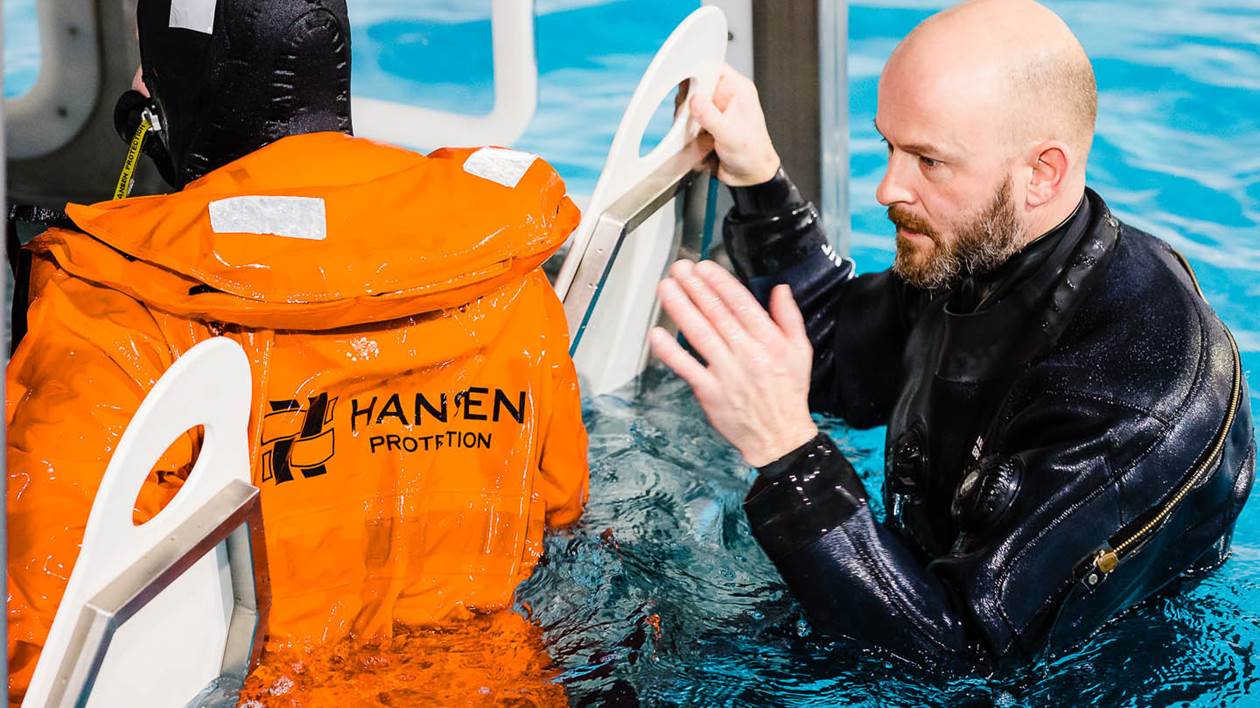Helicopter Underwater Escape Training, abbreviated as HUET and often called helivelt, is training given to helicopter crews, the offshore oil and gas industry and other personnel who are regularly transported offshore in a helicopter. As the name implies, the purpose of this training is to prepare passengers and crew for evacuation in the event of an emergency landing on water.
HUET is part of the basic safety course, but is also offered as a separate course for those who lack a helicopter evacuation part of the basic course. Upon completion of the course or the HUET module, participants must have knowledge of emergency landing and survival at sea; participants must be able to get out of a sinking helicopter and must be able to wear a life jacket with an integrated breathing lung. Basic safety course (GSK), basic safety course refresher course and helicopter evacuation are offered several times a week at all ResQ's locations.
The course combines practical exercises and theory on various escape techniques, personal aids, helicopter equipment and various emergency procedures and when to use them. After a theoretical review and demonstration of the use of EBS (breathing system), participants will undergo water habituation exercises where the goal is to get used to the water and the equipment to be used inside the simulator. In the simulator, participants will perform evacuation exercises with and without the breathing system, where most exercises involve the helicopter module overturning 180 degrees. This means that one will have to evacuate out of the module while under the water. The instructors will, both before the practical exercises and before each roll, undergo the correct procedure for evacuation, so that all participants are confident in what to do during the exercises.
In the video below, our instructor answers questions about what most course participants worry about before the practical part of the course that takes place in a simulator in the pool. The recurring questions are often related to swimming and use of EBS (breathing system).
